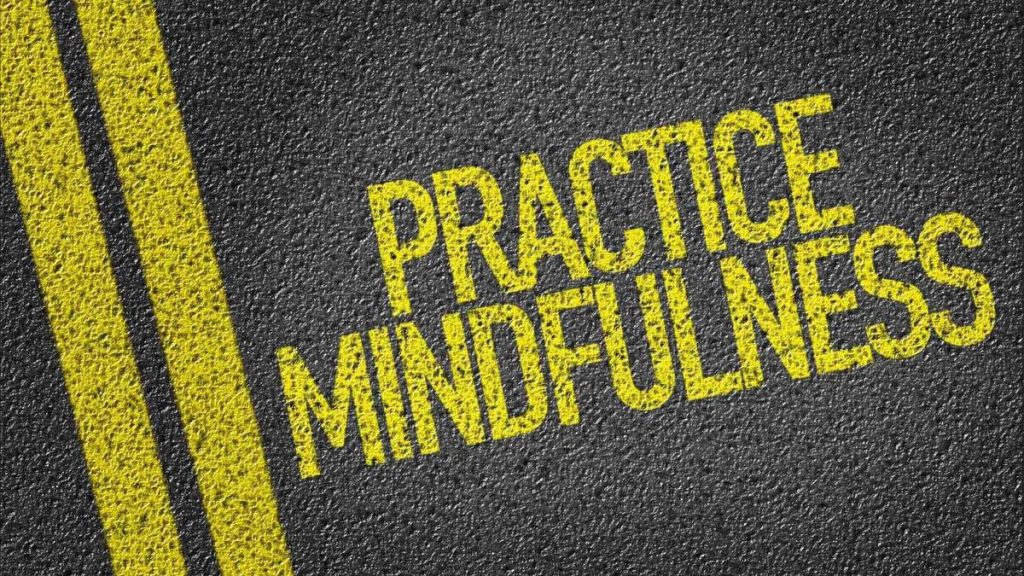Teenagers tend to be moody, but they shouldn’t be stressed out. While a good deal of may presume that this is a normal part of teenage life, it is not. Stress can lead to anxiety and depression and just one study shows that up to 20% of teenagers suffer from depression.
Other research suggests that up to 32 % of teens suffer from anxiety. Teenagers among these numbers will want to know how to deal with depression at school and their parents and loved ones will benefit from this information as well.
Almost all of a teenager’s day is taken up at school. And then after their regular school hours, their time is probably taken up in extracurricular activities and then once they go home there is also homework. In most places, school is a legal requirement for parents and caregivers to fulfill. School is already a challenge for teenagers, imagine adding anxiety and depression to their plate.
EFFECTS OF DEPRESSION AND ANXIETY ON TEENS AT SCHOOL
Here are signs to look for to check if anxiety and depression are affecting a teen.
Anger and Irritability
Teenagers, like anybody else, will find it hard to deal with other peers when their patience is wearing thin. If they are lashing out at parents, siblings, other kids, and their teachers, this is a sign they may be suffering from anger and/irritability.
Self Esteem Issues
Teens can find themselves filled with self-doubt. When they are experiencing this, they can find it hard to get through the day without hyper-focusing on achievement. If you are constantly criticizing yourself and feeding off everybody’s expectations to always be a top achiever can be overwhelming.
Decreased Motivation
Do you find you are always feeling down and tired and so it is hard for you to do things you normally enjoy? If you find you now have to try hard to make yourself perform your everyday tasks to the point where your grades are suffering, then you could be depressed.
Changes in Sleep Patterns
Sleep disorders are a core symptom of depression. When a teenager is not sleeping properly, they will have trouble focusing in class and will find it hard to think quickly and clearly. This will affect their ability to keep up with all their school-related and home-related responsibilities.
Perfectionism
Anxious teens may find themselves feeling like they have to get everything done perfectly. They start doing too much, expecting too much, and end up criticizing themselves too much. For teenagers, feeling this way it can be devastating for them to have even minor mistakes.
Substance Abuse
Teens are naturally in a time of their life when they will be curious and will experiment. Those who are depressed and suffering from anxiety may have a different type of temptation – to find an avenue to escape their emotions. This can easily lead to substance abuse and addiction.
Social Problems
When you are feeling down it is easy for you to want to isolate yourself from your friends and social situations. This may be done in an effort to avoid rejection and embarrassment.
HOW TO COPE WITH DEPRESSION OR ANXIETY
If you think you are depressed or suffering from anxiety, the best thing to do is to talk to someone. We all go through periods when we feel a little off. For some of us that may last for a couple of days and for others, it can last a few weeks. If you are persistently or severely affected by anxiety and depression you may need professional help to combat it. Apart from speaking with a professional, here are a couple of things you can do to manage anxiety and depression.
Cut Back
Not everything at school is a must. If you can lighten your load a bit, that could help. Take a semester off from one of your sports or extracurricular activities. Talk with your parents, a trusted friend, or a counselor at school and decide what you should drop from your schedule.
Identify Social Support and Distractions
Take a hard look at your life and see the people there. Are they distractions or are they social support? Pay less attention to those people that make you feel worse and try to spend less time with them. Gravitate towards the people who make you feel better whether while in their presence or after you have been in their presence.
Stop Avoiding
While you are cutting back on some of your responsibilities and staying away from those that have a negative impact on you, you don’t want to stay away from everyone. Fatigue and fear will make you want to isolate yourself, but don’t let those get the better of you.
Find a Healthy Way to Release
You do this by engaging in the things that you do enjoy. Find time to get in some physical activity, especially outside. When you get rid of some of the things and people that you shouldn’t be around, you will have time to do more of the things that you love.
HOW TO TELL YOU NEED PROFESSIONAL HELP
When your feelings start getting in the way of your personal life, you know it is time to get professional help. If your grades have dropped significantly and you are tempted or have already started to use drugs and alcohol to cope, or if you are having thoughts of harming yourself or others and if you are staying away from social activities you normally love, then it is time to consider treatment in the form of therapy. If you are conflicted about reaching out to someone, you know you can reach out to the National Suicide Hotline or the National Alliance for the Mentally Ill Hotline.
10 GREAT TIPS FOR DEALING WITH DEPRESSION IN COLLEGE

College campuses across the country acknowledge that depression is a significant and prevalent condition. There are a lot of risk factors for college students including:
- Finances
- Schoolwork
- The stress of juggling school and a job
- Isolation in a new setting
- Missing friends and family members
IS SCHOOL THE LEADING CAUSE OF DEPRESSION?
While school may not be the leading cause of depression, research shows that 75% of mental health conditions begin before the age of 24. So we can see there is a link between school and depression. The college years are a crucial time for talking about and understanding what your teen may be going through.
Depression is prevalent, but the good news is that it is highly treatable and you don’t have to suffer in silence. Symptoms of depression include:
- Feelings of sadness
- Hopelessness
- Emptiness
- Lack of interest in previously enjoyable activities
- Low energy
- Fluctuations in weight
- Sleep disturbances
- Feeling worthless
- Guilt
- Difficulty with concentration
- Irritability
- Restlessness
- Thoughts of suicide
- Indecisiveness
Depression’s symptoms can make it hard for people to function in their day to day lives. If you find your symptoms getting increasingly harder to manage, you may start feeling suicidal. Whenever these feelings start, you need help right away.
According to the CDC, suicide is the second leading cause of death for persons between the ages of 15 and 34. Suicidal thoughts are the most serious of symptoms of depression and you should never keep this to yourself. With help, you can get relief from these and other symptoms so you can begin to get over your depression. The National Suicide Prevention Lifeline can be accessed 24/7 at 1-800-273-TALK.
Treatment for depression comes in a number of forms. You can take medication or engage in therapy, or both. But there are other things you can do to help relieve some of the symptoms that are associated with depression. Some of these methods have better long-term outcomes than medication and psychotherapy alone. Here are ten coping strategies you can use to improve your symptoms of depression and anxiety. When used together these can help to increase your sense of wellbeing incrementally over time. We hope these strategies will help you to deal with your depression. You can also find more helpful resources for you or a loved one who is suffering from depression.
1. Engage in Psychotherapy
You shouldn’t try to cope with depression alone. You will want to seek out the help of a licensed mental health professional who can help you find relief for your symptoms and prevent future recurrence.
There are numerous things you want to consider when you are choosing a therapist. You want to understand the therapist’s specialties. You also want to do some research on how other clients view this professional.
If you have been in therapy before and it didn’t work, it may just have been that you and the therapist did not mesh. So you should do your due diligence to find a therapist that will be a better fit for you.
Your college will have a counseling center on campus and you could access the services here at no cost. Therapists working in these settings typically have expertise working with college students, so they should be a good fit. The staff is also able to coordinate with the Disability Resource Center of the school in the event that the student needs these accommodations.
You should be able to find information on how to access your campus’s counseling center from the university website. You can also reach a therapist off campus if you feel more comfortable doing that.
Do you struggle with depression?
We have clinicians expert on depression, feel free to read about them, or book a free consultation to review your situation.
2. Explore Medication Options
Speak to your primary care provider the minute you suspect you are depressed. They can guide you through the appropriate steps to should take. They can rule out any underlying medical problems and may treat those to lessen your depression. They may also recognize the need to prescribe medication if they feel it is warranted. Or they can refer you to a therapist.
For some individuals, psychotherapy is not enough, and so you may need to combine psychotherapy with oral medications to improve mood and lessen symptoms of depression.
3. Practice Being Mindful

This means staying aware of the present moment. It sounds simple enough, but it is something that you have to practice repeatedly to ensure its efficacy. With practice, you can develop this art.
As a college student, you may have a lot of commitments to manage and juggle. So you might find you may have a hard time with what you need to do next. Sometimes all you need is a minute or two to just stay present.
You can go a step further by choosing a therapist that emphasizes mindfulness. They should be able to guide you through perfecting the art of staying present so you can call on this as a means of complying with your symptoms when they arise.
Practicing yoga can also help to emphasize and improve your ability to practice mindfulness. You can also make use of mindfulness meditations or attend meditation classes or retreats.
The American Psychological Association (APA) reports that therapies that have a basis in mindfulness help to treat depression as well as reduce the chances of relapse for persons who have been diagnosed with depression.
The good thing is, mindfulness exercises can be practiced anywhere and at any time. Nobody will know that this is what you are doing, so you can do them in a crowd, on the field, or in a classroom. Whenever you find yourself in a stressful situation and you find that anxiety is creeping in, you can start practicing the exercises that can keep you in a safe place and keep you going throughout the day.
4. Spend Time Outside
A simplified form of treatment for depression and anxiety is to spend time in nature. This can reduce your depression symptoms notably. In fact, there is a model of therapy that is built around the philosophy of spending more time in nature. It is called Ecotherapy and is also known as nature therapy or green therapy. There is even research that supports the efficacy of this particular treatment.
Researchers from all over the globe have looked at the effects of spending time in nature and how this affects those who are suffering from anxiety and depression. In Japan, they have a custom known as forest bathing, which essentially means you are spending time around trees. The practice is known to have the ability to lower blood pressure and heart rate while also boosting the immune system, boosting the production of hormones that reduce stress, and providing an increased overall feeling of wellbeing.
A simple 30-minute walk in an area with greenery should do the trick. Many college campuses have a lot of greenery with hiking, walking, and biking trails, so it shouldn’t be hard for you to find somewhere to go. If your college is in a big city, and you have no green space, you should take a trip to the suburbs whenever possible so you can get that in.
The benefit of spending time outside is that you are active, whether it’s swimming, walking, running, or hiking. Hence, you are doing some sort of exercise. And that takes us to the next tip.
5. Exercise
Exercise is known for having many benefits. It can:
- Strengthen one’s heart
- Lower blood pressure
- Reduce body fat
- Improve strength
It has also proven to be beneficial in reducing anxiety, stress, and depression. College students can enjoy all of these benefits, which can help to improve thinking skills and memory. These are highly valuable attributes for college students.
Research has proven that exercise is beneficial for treating mild to moderate depression. It can be hard to find the motivation to exercise when you are depressed. Your college or university should have a recreational area for students in which they can exercise or engage in sports they enjoy that can double as your physical activity. Most often these are paid for with your student fees and so you should be able to access them for free.
You can get benefits by simply walking for 30 minutes four times per week. When you exercise, your body releases endorphins that can help you to feel better. So really and truly it doesn’t matter too much what you are doing, as long as you are getting your heart rate up. So you can choose something that you enjoy as your form of exercise. Connect with a group of friends and do something that will have you active but will keep your mind off the fact that you are exercising.
6. Develop Stronger Social Connections

When you go to college, you move away from your friends and family and basically start a whole new life. You meet a whole set of new people and at first, it can be overwhelming and exhausting. You will need to put time and energy into meeting these people and building a connection with them because this is important for your mental health.
Social connection is known to have the ability to help reduce stress’s impact on you. When depression sets in, you won’t be partaking in all the activities you once used to. Being isolated from your usual friends and family members will make it even easier to sink into depression and stay there. Depression always thrives when you are in a situation where you are isolated and lonely, so it is important to reach out before it gets too hard.
If you find it difficult to make new friends, try to attend study groups arranged in a class. Go out to school events and join clubs so you will have multiple ways to meet people and get to experience them and their company. Over time, with regular exposure, friendships will develop.
Also, stay connected with your friends and family members back home with video calls and regular communication.
7. Eat Better

The better you eat, the better you feel. When you are in college, it can be hard to find the time to ensure you are eating healthy, balanced meals. But this is just one more thing that doesn’t need to be overwhelming. By merely adding more nutrient-rich foods to your diet you can make changes that you will benefit from.
Try to have fruits and nuts on hand that you can snack on such as almonds and apples as these are easy to carry around. Making small choices can make a huge difference so if you can start your day with oatmeal, fruit, and green tea, at least start the day right.
There are a number of nutritional deficiencies that can contribute to your feelings of depression. So check with your doctor and see if you need to add any supplements to your diet.
There is much literature out there that can help you to understand how depression is affected by your nutrition. New research indicates that nutritional factors are intertwined with human emotions, behavior, and cognition. Research shows that persons suffering from depression tend to not be getting the right amounts of macronutrients that their bodies need.
You can check with your campus health center, they may have a dietician on hand that can help you make better choices. You can also check to see if there are any nutrition courses in your electives and choose one of those.
8. Get Better Quality Sleep
When we are behind on sleep, we all suffer. Everybody from the young to the old. Many of us don’t get enough sleep because of stress, or other social commitments. Sleep is very important as it is critical for a number of different bodily functions. You should learn to prioritize sleep to maximize your health, both physically and mentally.
9. Avoid Alcohol and Drug Use

Alcohol use in college has become somewhat of a norm even for underage college-goers. But it is important to note that drinking has a lot of negative side effects, and so does drug use. If you think you may be depressed, it could be best to simply avoid drug and alcohol use altogether.
Alcohol and drugs can be an easy escape from your feelings, but it is never a wise choice. One study indicated that students with poor mental health tend to lean toward more alcohol use. When you combine drug use with that, it can make the symptoms of depression even worse.
When left untreated, alcohol and drug abuse can escalate quickly into addiction. If you think you are at risk, please reach out to someone right away. You can connect with the Hope Line at 1-800-622-2255.
10. Set Healthy Boundaries
Depression is characterized by feelings of excessive guilt and worthlessness. When you are feeling this way, you find it hard to say no. Setting boundaries should be a priority and it is in your best interest.
The pressure to say yes to everything can be significant in college. You will feel pressure to seize the day and enjoy your youth. It is OK to not say yes to every study group or party. Try to establish balance in your daily life and school life. Yes, you want to be social but you don’t want to overdo it.
Set boundaries, the same way you would set goals. Make an effort to commit only to the things that will bring you joy. Choose a long run over a party where there will be temptations for alcohol and drugs. As much as you don’t want to disappoint people, you have to take care of yourself. Don’t put yourself in danger just because you are afraid of disappointing a friend. You may be surprised how wonderful you feel after saying no and actually going on that run.
We hope that the information found in this blog is helpful to you today. It is hard as a teenager or young adult, whether in high school or college. These years are demanding ones and sometimes it all gets too much. So we wanted to provide you with some information on how to deal with depression at school. If you need more help, we are here for you. Contact us today and talk to a professional.
Do you struggle with depression?
We have clinicians expert on depression, feel free to read about them, or book a free consultation to review your situation.
